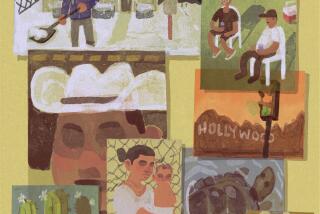OC HIGH / STUDENT NEWS AND VIEWS : Lack of Familiarity Breeds Racism and Hate
- Share via
Superman isn’t the only one who could benefit from X-ray vision.
In a world where people continue to judge each other on the basis of their skin color, society might well wish more people had his eyes.
Between May 1990 and May 1992, there were 212 incidents of hate crimes in U.S. high schools, according to the Southern Poverty Law Center in Montgomery, Ala.
There are many forms of racism, but overt racism is manifested by prejudice and some kind of discriminatory act that is usually conscious, says Joseph Liu, professor of the Comparative Culture Department at UC Irvine.
Caused by ignorance and fear of the unknown, this type of racism is perpetuated by stereotypes, according to Mary Ottman, an affirmative action specialist at UCI.
“We’re afraid of what we don’t know. A lot of (racism) has to do with stereotypes,” Ottman said. “People extrapolate a situation from the media, like the riots, and they take those behaviors and apply them to the entire race of African Americans. So, in spite of the fact of the small number of people in an economically depressed area, we go ahead and apply those behaviors to every black we come into contact with.”
Because racism is a learned behavior, children will imitate how their parents act toward people and the way they hold themselves around other races, says psychologist Justo Corpuz of Houston.
“In a hypothetical world with no outside interference, if you put a black kid, a yellow kid, a brown kid and a white kid together, and they grow up without anyone else’s help, they’re not going to know any differences between themselves because they don’t have any preconceived ideas of racism,” Corpuz said.
“They don’t know about hating people just because their hair is blond or their skin is dark. They’re not going to pick on each other because of physical attributes; they will probably pick on each other for ideas they don’t like. They’ll show individual differences through their personality, how they think and how they create ideas.”
*
An black student at Troy High School in Fullerton said she felt the full effects of racism when she attended a wedding with her best friend.
“Five people scrutinized me throughout the whole ceremony and reception,” she said. “I felt totally out of place because I was black. While I was standing by the wedding cake, a friend of Jane’s uncle walked straight up to me and said, ‘Why are you here? You’re not wanted.’ I was so shocked that I couldn’t say anything. I could feel that all eyes were on me, and when I got home I was so upset that I just sat in my room and cried.
“I don’t even know those people, and I’ve never done any wrong to them,” she said. “I don’t understand why they hate me because of the color of my skin. People are human, not colors, and it’s sad to think people would judge others solely on their appearance. You’re not born a racist; you’re taught to hate others.”
In order to stifle racism, schools need to introduce a course on multicultural education as early as first grade, Corpuz said.
“It should be part of the curriculum to actually be able to accept and identify each other as people. As children, you don’t have a white person or a black person; you’re all people.
“When kids are playing, it shouldn’t be, ‘Why don’t you go play with that blond boy,’ ” Corpuz said. “When you do that, you’re subconsciously stereotyping people with their physical attributes. There’s an underlying element of racism in saying that instead of saying, ‘Why don’t you go play with Jeff,’ who is a person that happens to be blond-haired and blue-eyed.”
*
Learning about other cultures will significantly reduce racism and promote a universal understanding of all peoples, Ottman said.
“The best way to end racism is by fostering individual relationships with people from other cultures. Not just race; I’m talking about lifestyle: gays, lesbians, bisexuals, religion, age, whether or not you’re from Mexico or Puerto Rico. People should also share foods and customs with each other, because differences aren’t bad.”
More to Read
Sign up for Essential California
The most important California stories and recommendations in your inbox every morning.
You may occasionally receive promotional content from the Los Angeles Times.










